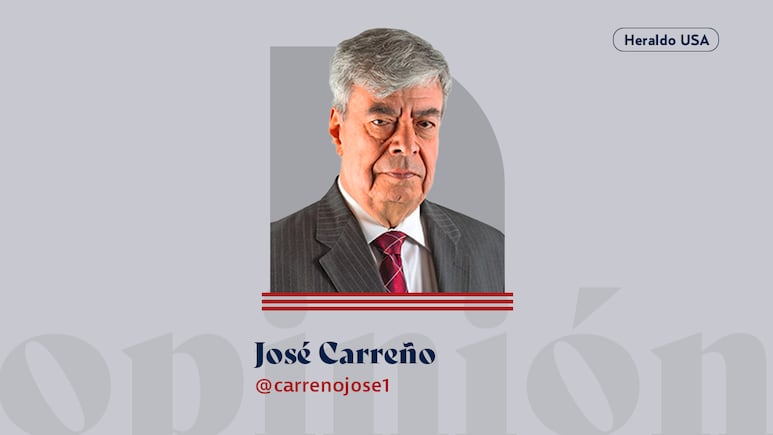FROM THE OUTSIDE | The United States and Cuba… once again
Marco Rubio’s statements that the regimes of Cuba, Nicaragua and Venezuela are “enemies of humanity” raised tensions with the United States

The remarks made by U.S. Secretary of State Marco Rubio, in which he referred to the regimes of Cuba, Nicaragua, and Venezuela as “enemies of humanity,” escalated the already strained relations between the United States and the most leftist nations in Latin America to a new level.
Publicidad
Rubio described the Nicaraguan government as “a family dynasty” and reaffirmed his recognition of opposition leader Edmundo González as the elected president of Venezuela.
However, he reserved his most severe criticisms for the Cuban government, which, in response, condemned the Cuban-American Rubio and the economic blockade against the island.
To some extent, it’s nothing new under the sun: the relationship between the United States and the regional left has always been poor—quite the opposite.
Publicidad
However, the issue of Cuba has substantial emotional weight, amplified by the impact of Cuban-Americans on U.S. policy regarding Havana and its allies.
Publicidad
Marco Rubio is Cuban-American, as are Senator Ted Cruz and five representatives, including María Elvira Salazar, chairwoman of the House Subcommittee on Western Hemisphere Foreign Affairs.
Approximately 70 percent of Cuban-American voters support Donald Trump and have shown strong loyalty to the Republican Party for years.
This loyalty has influenced the U.S. government’s position on Cuba, which was governed by Fidel Castro for over 40 years and then by his brother Raúl and is now led by Miguel Díaz-Canel. The resentment that Cuban refugees harbor towards the Castros is characterized by profound personal animosity; however, the legitimacy of the Castros’ regime stemmed from their revolutionary armed struggle. These traits are lacking in Díaz-Canel’s government.
Cuba is undeniably a symbolic thorn in the side of the United States. This country declared itself Marxist 60 years ago, inspiring many idealists to join guerrilla movements throughout the region, most of which ultimately failed. Today, it is more accurately defined as a bureaucratic regime struggling to maintain power amid an ongoing economic crisis, which it blames on the U.S. blockade.
Paradoxically, the open hostility of the United States has been one of the Cuban regime’s best tools for staying in power. The regime has portrayed itself as a heroic “David” resisting the attacks of the imperial “Goliath.” Yet the constant emigration from the island is a testament to its problems.
The easing of tensions during Barack Obama’s administration fostered the growth of Cuban dissent, evident in the calls for liberalization in 2021 and in the increasingly defensive repression employed by Díaz-Canel’s regime.
However, the Republicans and their alliance with Cuban-Americans—now strengthened by the influx of anti-communist immigrants from Nicaragua and Venezuela—block any chance for dialogue and, indeed, any opportunity that could potentially deal a decisive blow to the current Cuban regime.
Thus, the desire to appease “hardline” Cuban-Americans acts as a crutch for the most conservative factions of the Cuban government and serves as a rallying flag for the regional left.
Publicidad
Publicidad
Más Leídas | Heraldo USA
¿Cuál es el peso y estatura de Salma Hayek en 2024?
Por Heraldo USA
¿Florinda Meza fue la responsable del final de El Chavo del 8? Esto dijo Mhoni Vidente
Por Heraldo USA
México te abraza: Así funciona el programa para apoyar a los migrantes deportados de EEUU
Por Heraldo USA
No sólo es Karely Ruiz: conoce el top 5 de las mexicanas mejor pagadas de OnlyFans
Por Heraldo USA
Publicidad
Más noticias de Columna
Más noticias de Estados unidos








